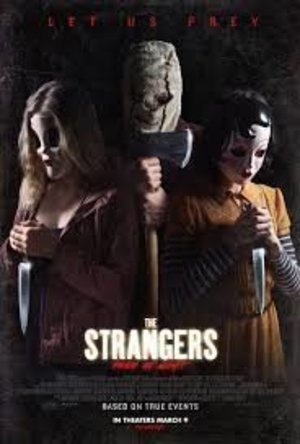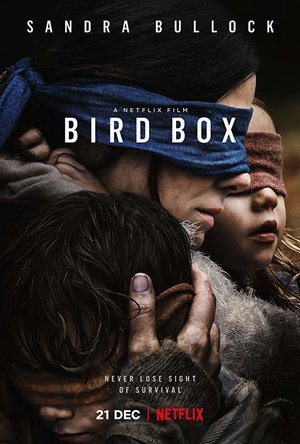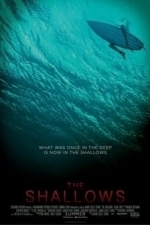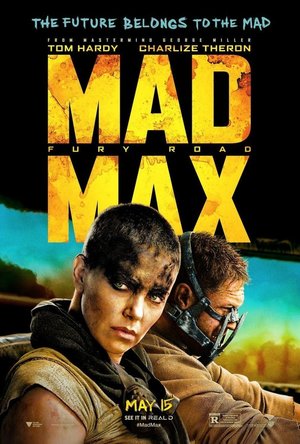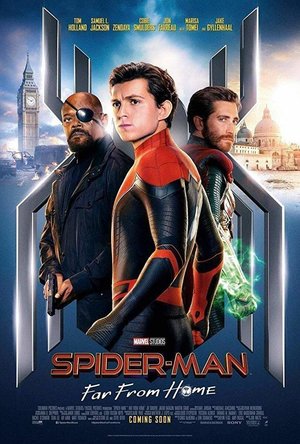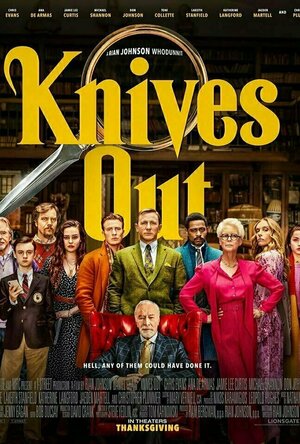Search
Search results
Merissa (13792 KP) rated The Beginning in Books
Dec 17, 2018
For a prequel novella, this book packs in a lot of information in a relatively short amount of time. Cecily is a 'royal' Witch but she is royally fed up with her life. She wants to live like a human but is being hassled to be the one who gives birth the one long awaited, the one who will save the witches. Unfortunately, this means that she has suffered through nine miscarriages. I don't mean one or nine relationships though. She is there as a brood mare, along with the other royal witches, until the Tenth is born.
She meets up with her friend, only to find out that the meeting was just a ruse to try and get her to continue. Hurt by the betrayal, she leaves and finds her way to a bar where the music tempts her inside.
Like I said, there is a lot of information in here that will delight and tempt you, and definitely leave you wanting to know more - about Cecily, about James, about the situation they find themselves in, about their world in general.
With no spelling or grammatical errors that I found, this was an enjoyable and quick read, perfectly leading on to the next book in the series - A Late Summer Bloom. Definitely recommended.
* I received this book from the author in return for a fair and honest review. *
Merissa
Archaeolibrarian - I Dig Good Books!
She meets up with her friend, only to find out that the meeting was just a ruse to try and get her to continue. Hurt by the betrayal, she leaves and finds her way to a bar where the music tempts her inside.
Like I said, there is a lot of information in here that will delight and tempt you, and definitely leave you wanting to know more - about Cecily, about James, about the situation they find themselves in, about their world in general.
With no spelling or grammatical errors that I found, this was an enjoyable and quick read, perfectly leading on to the next book in the series - A Late Summer Bloom. Definitely recommended.
* I received this book from the author in return for a fair and honest review. *
Merissa
Archaeolibrarian - I Dig Good Books!
Jessica - Where the Book Ends (15 KP) rated Harp's Voice (Harp's Song, #2) in Books
Jan 30, 2019
This is the second book in the series and picks up right where the first book leaves off. Cassie Shine doesn't miss a beat on this book. She continues the story of Harp with even more emotion, and heart wrenching detail than the first book in the series.
Harp was a lot different in this book than the first book, and honestly she wasn't my favorite character. I thought she was acting like a brat, stubborn, and persnickety. If you know and understand her life up until this point I feel like she was allowed to be this way up to a certain point. I did think she had a lot of personality and she was extremely bold which made me fall back in love with the character.
I loved Anne, and the way she grows throughout the book. Her relationship with Harp is rocky, but throughout the story you can see her motherly instincts grow and a mother daughter relationship form. It was beautiful.
The only thing I would change about this would be maybe a novella to follow to show the characters in 5 years and see how their stories wrap up. I'd love to see Anne end up with Dr. Dylan, and how her family's reunion is going.
Overall I loved this story. It's very moving and heart wrenching. I can't wait to read more from this author she's absolutely wonderful and her stories are indicative of a book hangover.
Harp was a lot different in this book than the first book, and honestly she wasn't my favorite character. I thought she was acting like a brat, stubborn, and persnickety. If you know and understand her life up until this point I feel like she was allowed to be this way up to a certain point. I did think she had a lot of personality and she was extremely bold which made me fall back in love with the character.
I loved Anne, and the way she grows throughout the book. Her relationship with Harp is rocky, but throughout the story you can see her motherly instincts grow and a mother daughter relationship form. It was beautiful.
The only thing I would change about this would be maybe a novella to follow to show the characters in 5 years and see how their stories wrap up. I'd love to see Anne end up with Dr. Dylan, and how her family's reunion is going.
Overall I loved this story. It's very moving and heart wrenching. I can't wait to read more from this author she's absolutely wonderful and her stories are indicative of a book hangover.
Sarah (7800 KP) rated Strangers: Prey at Night (2018) in Movies
Dec 26, 2018 (Updated Aug 19, 2020)
An unnecessary sequel
Yet again this is another sequel that was entirely unneeded and unnecessary. Whilst the original wasn’t brilliant or a classic, it was at least very creepy and bleak, and the ending was quite interesting and what i found the scariest thing of all about the entire film.
Sadly this sequel fails because it mostly ruins the ending of the first film. It’s initially more of the same but set in a trailer park, with characters who make some very dodgy decisions that wind up getting them hurt/killed. It’s quite bloody and gory at least, and still kind of creepy, and it has a killer soundtrack. The two kids do fairly well, and as with Hard Times at the El Royale, Lewis Pullman really shines and he makes this worth sticking with. The ending however is a little lacklustre and is just your typical horror movie ending. It wasn’t unusual or creepy and bleak like the original, and this is such a shame. Had they improved the ending, I may have rated this a little higher.
Edit 19th Aug 2020:
Having just rewatched the original, I has to return and rate this higher. Not only does it have the killer soundtrack it has some great performances and is a lot more entertaining than the original. There's still a lot of stupidity in this, but it's definitely the better of the 2 films.
Sadly this sequel fails because it mostly ruins the ending of the first film. It’s initially more of the same but set in a trailer park, with characters who make some very dodgy decisions that wind up getting them hurt/killed. It’s quite bloody and gory at least, and still kind of creepy, and it has a killer soundtrack. The two kids do fairly well, and as with Hard Times at the El Royale, Lewis Pullman really shines and he makes this worth sticking with. The ending however is a little lacklustre and is just your typical horror movie ending. It wasn’t unusual or creepy and bleak like the original, and this is such a shame. Had they improved the ending, I may have rated this a little higher.
Edit 19th Aug 2020:
Having just rewatched the original, I has to return and rate this higher. Not only does it have the killer soundtrack it has some great performances and is a lot more entertaining than the original. There's still a lot of stupidity in this, but it's definitely the better of the 2 films.
Faye Jeffries (1 KP) rated Bird Box (2018) in Movies
Dec 30, 2018
Underwhelmed
Contains spoilers, click to show
After the recent hype all over my social media about this film, I was extremely giddy to find myself with a few hours free after my little womb gnome had gone to bed and the fella was off to play Fifa. Finally, I could see what the drama was about.
The concept of the film is intriguing and it does get you gripped within the first 10 minutes. Similar to The Happening, sure, but the fact that it is seeing something which makes someone commit suicide rather than just being out in wind made it a bit more...tense. You know when you get the 'ohh nooo don't do that!!', you get that a lot in this film.
Sandra Bullock's performance is amazing. It's heartbreaking to see her emotionally cut herself off from the children to help them survive in the long run.
For me though, I felt like there was something missing. There wasn't much of a build up to anything because nothing really happens. It's just watching how it started and then their journey to a safe haven.
I am a bit miffed at the ending. So basically, they grew plants above the open spaces and that's enough? Why not just tell them that little golden nugget over the radio.
I won't watch it again but I did enjoy it, just left feeling a bit frustrated.
The concept of the film is intriguing and it does get you gripped within the first 10 minutes. Similar to The Happening, sure, but the fact that it is seeing something which makes someone commit suicide rather than just being out in wind made it a bit more...tense. You know when you get the 'ohh nooo don't do that!!', you get that a lot in this film.
Sandra Bullock's performance is amazing. It's heartbreaking to see her emotionally cut herself off from the children to help them survive in the long run.
For me though, I felt like there was something missing. There wasn't much of a build up to anything because nothing really happens. It's just watching how it started and then their journey to a safe haven.
I am a bit miffed at the ending. So basically, they grew plants above the open spaces and that's enough? Why not just tell them that little golden nugget over the radio.
I won't watch it again but I did enjoy it, just left feeling a bit frustrated.
LeftSideCut (3776 KP) rated The Shallows (2016) in Movies
Oct 28, 2019 (Updated Oct 28, 2019)
I could never make my mind up whilst watching The Shallows if I thought it was good or not... Not usually a good sign but it's pretty straightforward - there are some things about it which are great, and some which are not.
The best thing about The Shallows is easily Blake Lively. It's more a less a one woman show (the rest of the cast are paper thin and take up a tiny amount of screentime.)
She provides us with a lead character who you want to survive, and sells the simple narrative nicely.
The other main character is of course the shark. For the most part, we don't see much of the shark and this is where the horror elements of The Shallows are best realised. The general atmosphere of the first two thirds of the runtime carry a suitable amount of tension.
The final third let's it's slip a bit in this respect, switching out tension for action, which is usually ok, but here we're subjected to some dodgy special effects work, and a whole lot of stupid plot points that don't make a whole lot of sense (silly plot points are actually present throughout, and the main reason why The Shallows isn't better than it is)
One final thought - some of the sweeping shots are really nice - some good camera work going on!
It's not a bad watch by any means, and as far as shark movies go, it's better than most.
The best thing about The Shallows is easily Blake Lively. It's more a less a one woman show (the rest of the cast are paper thin and take up a tiny amount of screentime.)
She provides us with a lead character who you want to survive, and sells the simple narrative nicely.
The other main character is of course the shark. For the most part, we don't see much of the shark and this is where the horror elements of The Shallows are best realised. The general atmosphere of the first two thirds of the runtime carry a suitable amount of tension.
The final third let's it's slip a bit in this respect, switching out tension for action, which is usually ok, but here we're subjected to some dodgy special effects work, and a whole lot of stupid plot points that don't make a whole lot of sense (silly plot points are actually present throughout, and the main reason why The Shallows isn't better than it is)
One final thought - some of the sweeping shots are really nice - some good camera work going on!
It's not a bad watch by any means, and as far as shark movies go, it's better than most.
natmac (13 KP) rated Mad Max: Fury Road (2015) in Movies
Oct 17, 2019 (Updated Oct 17, 2019)
The direction is perfect, George miller uses so many little techniques to elevate the action sequences (6 more)
The film looks gorgeous
All of the actors are on point
The characters are really interesting and depth full
George miller accomplishes so much without dialogue, nothing is over explained, a lot is left for you to figure out or imagine
The sound design and special effects are on point
The practical effects and real life stunts make a difference in the emersion.
Probably my favourite movie ever
The plot is very simple but the film isn't about the plot. It's about the world building, the characters and the action. I think I've seen this film close to 20 times in the 4 years that it's been out and it never fails as an enjoyable watch. A lot of people I have watched this film with have complained about it being weird, and that really frustrated me. It's set in the post apocalypse of the director's vision with an explanation behind most things that isn't given. Even elements like the door warrior don't really have logic behind them but are still very creative. It's really enjoyable to watch the relationship between max and furiosa develop over the course of the movie, in what on the surface looks like nothing more than a 2 hour car chase. I love this film and can't find anything about it that bothers me.
Merissa (13792 KP) rated Skin Deep (Dark World, #1) in Books
Dec 17, 2018
I received this book from the author in exchange for a fair and honest review.
Kailin works as a counselor at a Drug Rehab Centre but you don't actually spend much time there. Logan is a policeman working for Omega who deal with Paranormal incidences. Kailin ends up being in the middle of an Omega investigation as she makes her own inquiries.
Kailin is a brilliant main female as she states her case, doesn't back down but isn't stupid enough to continue championing something that is a lost cause already. She has relationship issues with family and friends but those she lets in, get close to her. Logan makes the perfect foil for Kailin. He is also young for his profession and has his own secrets and problems.
There is a lot of action in this book - drug issues, torture, disappearance to just name a few. It isn't all physical though - both Logan and Kailin have mental and emotional issues to work through. This is a 'busy' book, with a story that goes all the way through without any dull moments. Some of the things that happen you can guess but there is a lot that will leave you wondering just where out of left field it came from. There is also the hint and promise of romance that runs through it.
Thoroughly enjoyable and a definite page turner. Recommended for all Urban Fantasy/Paranormal fans out there.
Kailin works as a counselor at a Drug Rehab Centre but you don't actually spend much time there. Logan is a policeman working for Omega who deal with Paranormal incidences. Kailin ends up being in the middle of an Omega investigation as she makes her own inquiries.
Kailin is a brilliant main female as she states her case, doesn't back down but isn't stupid enough to continue championing something that is a lost cause already. She has relationship issues with family and friends but those she lets in, get close to her. Logan makes the perfect foil for Kailin. He is also young for his profession and has his own secrets and problems.
There is a lot of action in this book - drug issues, torture, disappearance to just name a few. It isn't all physical though - both Logan and Kailin have mental and emotional issues to work through. This is a 'busy' book, with a story that goes all the way through without any dull moments. Some of the things that happen you can guess but there is a lot that will leave you wondering just where out of left field it came from. There is also the hint and promise of romance that runs through it.
Thoroughly enjoyable and a definite page turner. Recommended for all Urban Fantasy/Paranormal fans out there.
A thing you can't live with, but you can't live without
I joined Facebook many years ago and couldn't see the point of it. Very quickly though, it became very addictive.
I enjoy the fact that you can share photos with people and I use the messenger quite a lot, to privately talk to my friends.
In general though, I think that this is a good way for your time to be sucked away. It's also a way for your confidence to be lowered, when you see friends getting more 'likes' than you or you see people doing more interesting things than you. That's why I've cut my use of Facebook down, significantly of late.
One thing that has become increasingly annoying, is the fact that when I find something of interest and when I want to show someone else, I can't find it again. The content you see, differs depending on whether you look at it on your mobile, or your tablet etc.
I also don't like the different adverts and random videos that Facebook shows you. I feel like Facebook is in control of what I see, rather than only seeing the content my friends have shared.
Facebook has a lot of negatives but unfortunately, it's a necessary evil, because so many people use it to communicate nowadays.
I enjoy the fact that you can share photos with people and I use the messenger quite a lot, to privately talk to my friends.
In general though, I think that this is a good way for your time to be sucked away. It's also a way for your confidence to be lowered, when you see friends getting more 'likes' than you or you see people doing more interesting things than you. That's why I've cut my use of Facebook down, significantly of late.
One thing that has become increasingly annoying, is the fact that when I find something of interest and when I want to show someone else, I can't find it again. The content you see, differs depending on whether you look at it on your mobile, or your tablet etc.
I also don't like the different adverts and random videos that Facebook shows you. I feel like Facebook is in control of what I see, rather than only seeing the content my friends have shared.
Facebook has a lot of negatives but unfortunately, it's a necessary evil, because so many people use it to communicate nowadays.
James Koppert (2698 KP) rated Spider-Man: Far From Home (2019) in Movies
Nov 12, 2019
Was great just not as good as the last
Homecoming was so much fun that, in a way, "Far From Home" had an almost impossible task. In the 10000000th reboot of the comic hero favourite, Marvel got it spot on, having this Spiderman be a geeky kid on a journey of self discovery, awkward in his neediness and unsure of his capabilities. Its created a vulnerable Spiderman that everyone can relate to and love and most importantly root for.
Far From Home is post 'Endgame' and sees Spidey thrown into the unwanted position of being one of the few Avengers around. Now he has to take on a ew threat where things are not all they seem to be but no spoilers here.
What lets this film down compared to its predecessor is there is a lack of surprises and character growth for Tom Holland to play with. However its still a lot of fun as we see him become night monkey and fight the forces of darkness once again, this time through various locations in Europe (I'm sure the writer just put some European cities on their wish list and wrote a movie around it just so they could stay).
Its still a lot of fun and loveable. I just want a little more but there is no way this franchise is stopping yet.
Far From Home is post 'Endgame' and sees Spidey thrown into the unwanted position of being one of the few Avengers around. Now he has to take on a ew threat where things are not all they seem to be but no spoilers here.
What lets this film down compared to its predecessor is there is a lack of surprises and character growth for Tom Holland to play with. However its still a lot of fun as we see him become night monkey and fight the forces of darkness once again, this time through various locations in Europe (I'm sure the writer just put some European cities on their wish list and wrote a movie around it just so they could stay).
Its still a lot of fun and loveable. I just want a little more but there is no way this franchise is stopping yet.
Sarah (7800 KP) rated Knives Out (2019) in Movies
Dec 4, 2019
Fun modern sleuthing
I've been wanting to see this since I first saw the trailer, with such a stellar cast and Rian Johnson behind the helm I had high hopes and this did a fairly decent job of living up to my expectations.
The cast are brilliant. There are some great names in this and they all do well and for the most part they're all fairly equally featured. Nobody really stands out above the others, except for maybe Daniel Craig's southern accent. The film itself looks great and the way the story unfolds is interesting, it's very much like a modern day take on an Agatha Christie story - but a hell of a lot better than the bore that was 2017's Murder on the Orient Express. I do think it seemed to flag a little during the middle (after the midway twist but before the big reveal at the end), but it picked up at the end. I don't want to say the ending was predictable, but more like it wasn't entirely surprising. Still a good ending though and let's face it, with the amount of twist endings in books and crime/thriller films, it takes a lot to come up with a truly unpredictable and shocking denoument so this gives it a good go.
Overall a pretty entertaining and fun sleuthing caper, definitely worth a watch if you're into your murder mysteries. Maybe a little more Chris Evans next time...? 😉
The cast are brilliant. There are some great names in this and they all do well and for the most part they're all fairly equally featured. Nobody really stands out above the others, except for maybe Daniel Craig's southern accent. The film itself looks great and the way the story unfolds is interesting, it's very much like a modern day take on an Agatha Christie story - but a hell of a lot better than the bore that was 2017's Murder on the Orient Express. I do think it seemed to flag a little during the middle (after the midway twist but before the big reveal at the end), but it picked up at the end. I don't want to say the ending was predictable, but more like it wasn't entirely surprising. Still a good ending though and let's face it, with the amount of twist endings in books and crime/thriller films, it takes a lot to come up with a truly unpredictable and shocking denoument so this gives it a good go.
Overall a pretty entertaining and fun sleuthing caper, definitely worth a watch if you're into your murder mysteries. Maybe a little more Chris Evans next time...? 😉

